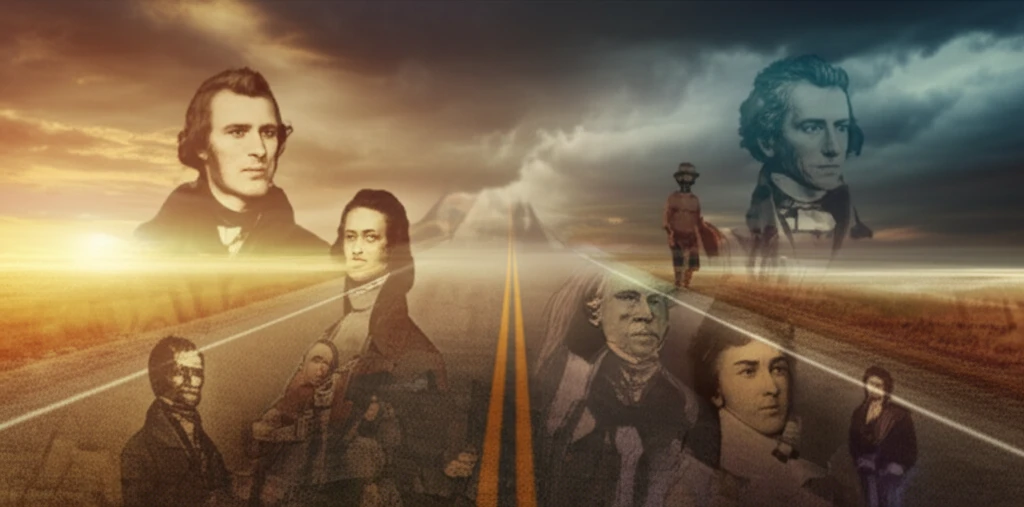
Beyond the Tourist Gaze: Re-Evaluating the American Road Trip
"Discover how historical perspectives and lesser-known narratives challenge our idealized vision of the open road and its impact on American culture."
The American road trip: a symbol of freedom, adventure, and the pursuit of the American Dream. But what happens when we look beyond the well-trodden paths of Kerouac, Springsteen, and Hopper? What stories lie beneath the surface of this cultural icon?
This article challenges the traditional narrative of the American road by exploring its complex history and social implications. By examining the perspectives of historical figures like Tocqueville, Baudrillard, Douglass, and Whitman, we uncover a more nuanced understanding of how the road has shaped American identity, culture, and spatial organization.
We'll journey beyond the familiar tropes of freedom and individualism, exploring the road's role in both fostering connection and reinforcing social divisions. Prepare to re-evaluate your understanding of the American road trip and its place in the American cultural landscape.
The Road as a Mirror: Reflecting American Ideals and Realities

The open road has long been idealized as a space of freedom and opportunity, a place where individuals can escape the constraints of society and forge their own path. However, this romanticized vision often obscures the complex realities of the road, its historical context, and its impact on different groups of people.
- Tocqueville's Vision: Saw the road as a unifying force, connecting communities and fostering a sense of national identity.
- Baudrillard's Critique: Argued that the modern highway system, with its emphasis on speed and efficiency, flattens space and creates a sense of hyperreality.
- Douglass' Experience: Highlighted the road as a site of oppression and control for enslaved people.
- Whitman's Ideal: Celebrated the open road as a space of freedom and self-discovery, accessible to all.
The Road Ahead: Towards a More Inclusive Understanding
Re-evaluating the American road means acknowledging its complex history and recognizing the diverse experiences of those who have traveled it. By moving beyond idealized visions and incorporating marginalized voices, we can develop a more nuanced understanding of this iconic space.
The road continues to evolve, shaped by new technologies, social trends, and cultural shifts. As we navigate the road ahead, it is crucial to remain aware of its past and its potential to both connect and divide us.
Ultimately, the American road trip is more than just a journey from one place to another. It is a reflection of our values, our aspirations, and our ongoing struggle to define what it means to be American. By critically examining the road and its many narratives, we can gain a deeper understanding of ourselves and the world around us.
